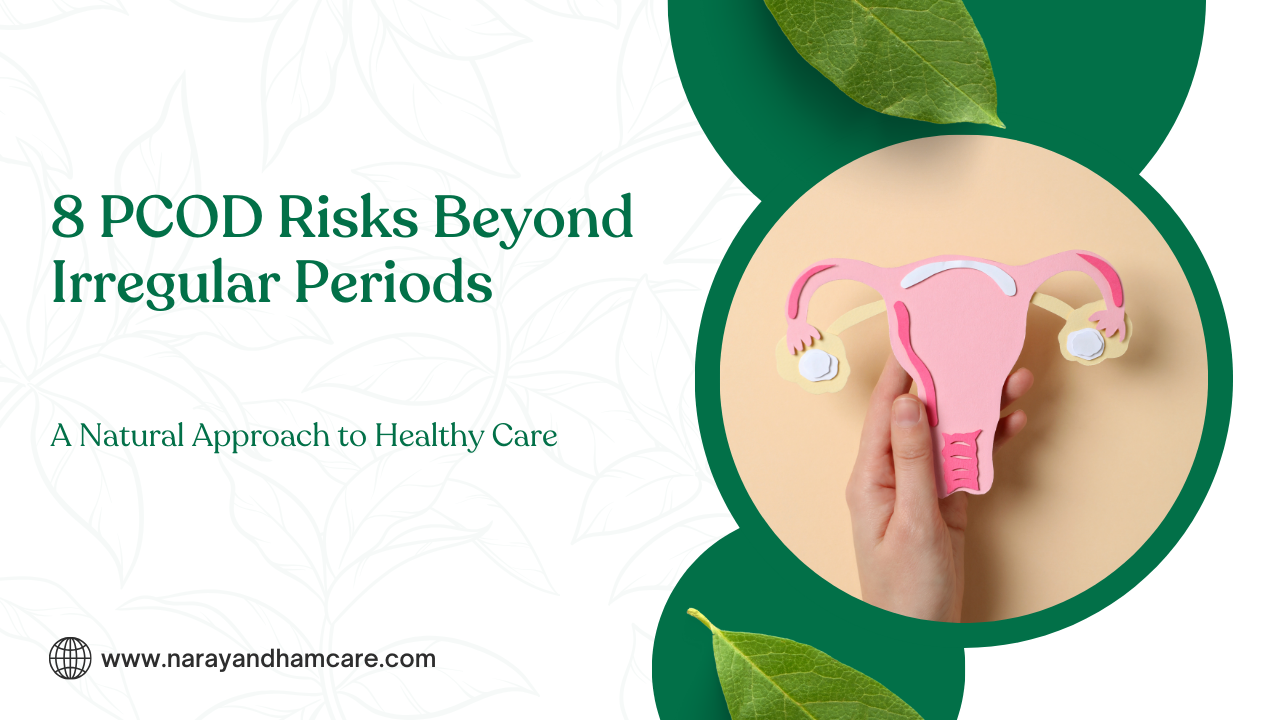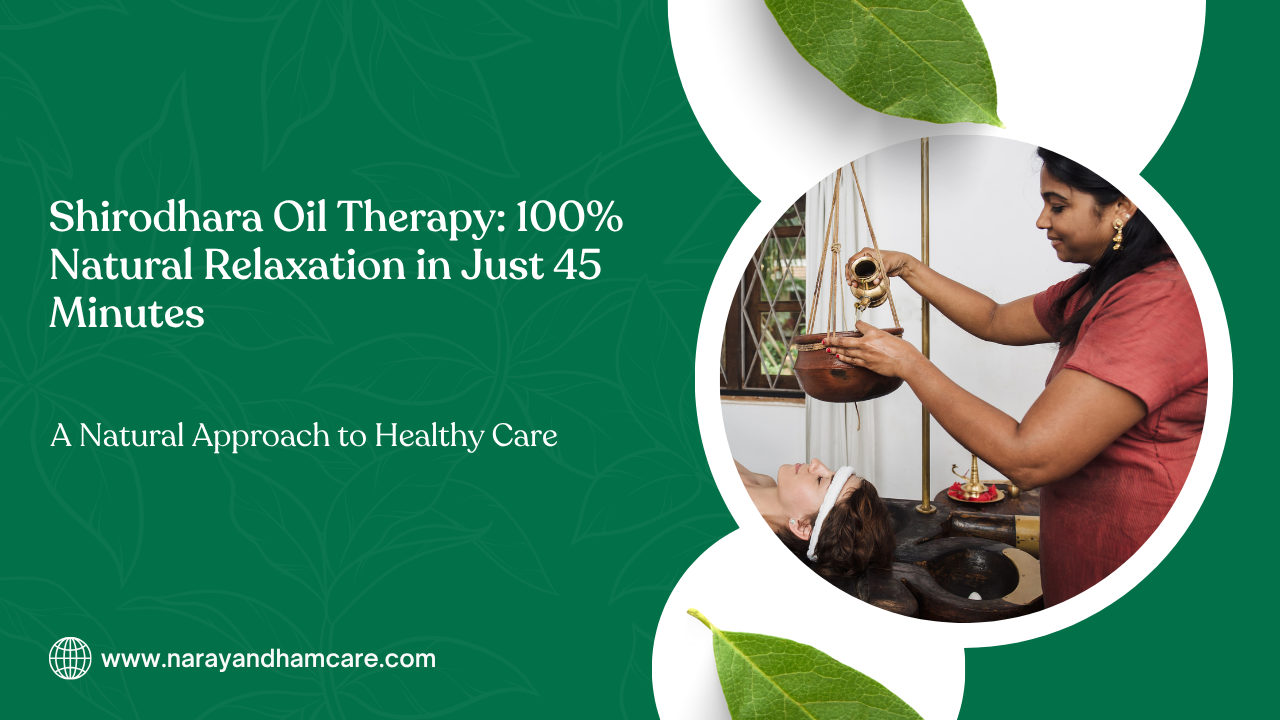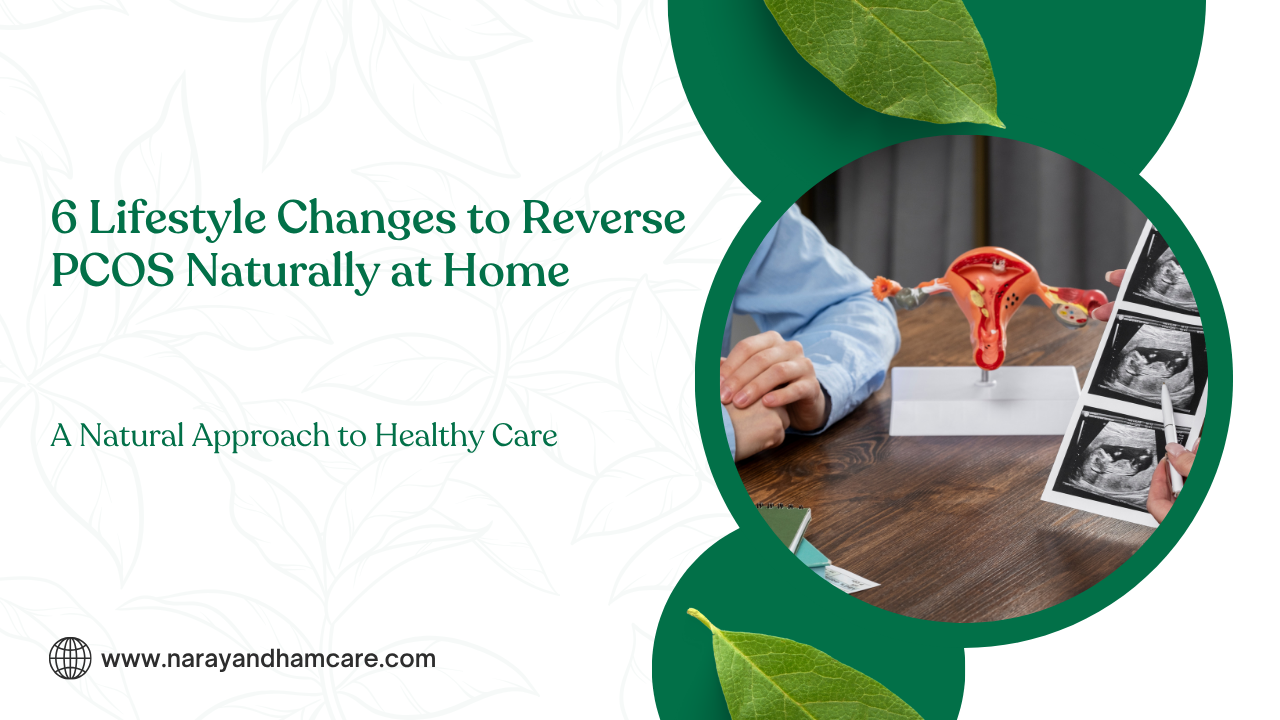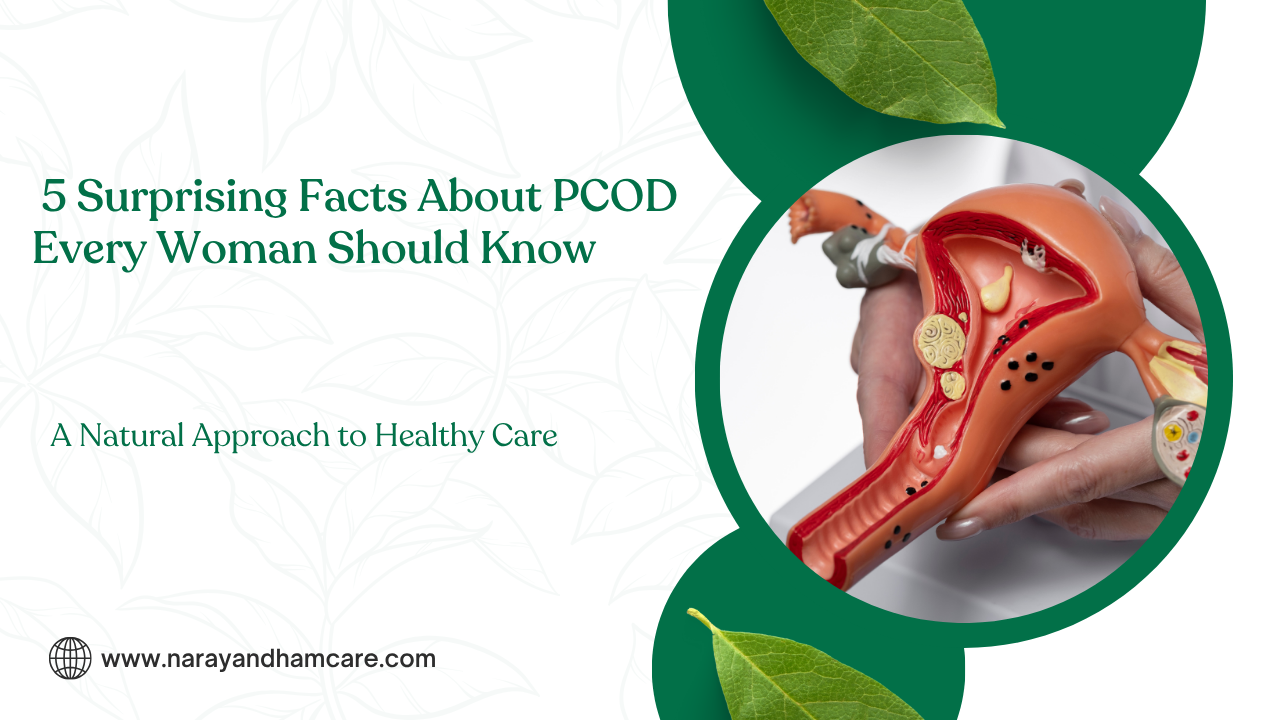Introduction
PCOD (Polycystic Ovarian Disease) is a common health issue among women today. Many people think that irregular periods are the only problem linked with, but that’s not true. There are many other health risks that come with this condition. If ignored, these risks can affect your skin, weight, mood, and even fertility.
This blog will explain the hidden risks, how to recognize the signs, and what you can do to manage your health naturally. We will also share easy lifestyle tips, natural remedies, and answer some common questions. Whether you’re diagnosed with PCOD or just want to know more, this article is for you.
Problem: PCOD is More Than Just Missed Periods
it happens when a woman’s ovaries produce too many immature or partially mature eggs. These eggs turn into cysts and cause hormone imbalance.
Most people focus only on irregular or missed periods, affects many parts of the body. If untreated, it can lead to problems like acne, unwanted hair, weight gain, insulin resistance, infertility, and even depression.
Many women suffer silently because the symptoms feel unrelated. Some think it’s just stress, poor diet, or bad lifestyle, but the root cause could.
Understanding the full picture of PCOD symptoms and risks is important for early treatment and healthy living.
Symptoms & Hidden Risks of PCOD
Here are 8 health risks of PCOD that go beyond just irregular periods:
1. Excessive Facial and Body Hair (Hirsutism)
Due to increased androgen hormones (male hormones), women may notice thick hair growth on the face, chest, stomach, or back. This can be emotionally upsetting and lower confidence.
2. Severe Acne and Oily Skin
it often causes hormonal acne, especially on the chin, jawline, and cheeks. The skin also becomes very oily, leading to clogged pores.
3. Hair Thinning or Hair Loss
While there is unwanted body hair, the scalp may suffer from hair loss or thinning. This happens because of the imbalance of hormones that weaken hair roots.
4. Weight Gain and Difficulty Losing Weight
One of the major issues is weight gain, especially around the belly area. Losing weight becomes difficult due to insulin resistance and hormonal changes.
5. Mood Swings and Depression
Many women with experience anxiety, sadness, or mood swings. This may be due to hormonal imbalance or the emotional stress of dealing with visible symptoms like acne or weight.
6. Dark Patches on Skin (Acanthosis Nigricans)
Some women develop dark, velvety patches on their neck, armpits, or groin area. This is linked to insulin resistance, a common condition .
7. Infertility or Trouble Getting Pregnant
it affects ovulation, making it harder to conceive. It is one of the leading causes of infertility in young women.
8. Higher Risk of Diabetes and Heart Disease
Over time, untreated it can increase the risk of type 2 diabetes, high blood pressure, and heart disease due to poor blood sugar control and high cholesterol.
Solution: Natural Ways to Manage PCOD
While PCOD cannot be “cured” completely, you can manage it naturally with lifestyle changes, diet, and Ayurvedic remedies.
1. Balanced Diet
- Eat whole foods, lots of fruits and vegetables, whole grains, and healthy fats.
- Avoid refined sugar, fried foods, and processed snacks.
- Include flaxseeds, fenugreek, cinnamon, and tulsi tea in your daily routine.
Ranking keywords:diet plan, natural remedies, food
2. Regular Exercise
- Try brisk walking, yoga, or swimming for 30 minutes daily.
- Surya Namaskar, Pranayama, and butterfly pose are excellent yoga options for PCOD.
Ranking keywords: yoga poses, exercise, yoga for hormonal balance
3. Manage Stress
- Practice deep breathing, meditation, or guided relaxation.
- Reduce screen time, get enough sleep, and take breaks during the day.
Ranking keywords: PCOD and stress, relaxation techniques
4. Ayurvedic and Home Remedies
- Drink cinnamon water in the morning to manage blood sugar.
- Take ashwagandha or shatavari supplements under expert guidance.
- Spearmint tea helps reduce androgens and control unwanted hair growth.
Ranking keywords: Ayurvedic treatment, home remedies
5. Stay Consistent
Healing takes time. Stay patient and track your cycle, weight, and mood regularly.
Frequently Asked Questions (FAQ)
Q1: Can PCOD be cured permanently?
A: it cannot be fully cured, but with the right lifestyle, diet, and Ayurvedic support, you can manage it effectively and live a healthy life.
Q2: Does every woman with PCOD face infertility?
A: No. Not every woman becomes infertile. Many women conceive naturally with proper cycle tracking, stress management, and healthy habits.
Q3: How do I know if I have PCOD?
A: If you notice symptoms like irregular periods, facial hair, acne, or weight gain, consult a gynecologist and get an ultrasound or hormone test done.
Q4: Are birth control pills safe for PCOD?
A: Doctors may suggest them for symptom control, but natural methods like diet and yoga are safer long-term options. Always consult your doctor.
Q5: Is hair loss from PCOD reversible?
A: Yes, with proper diet, herbal oils, and hormonal balance, hair growth can improve over time.
Conclusion
It is more than just an irregular period problem. It can affect your entire body and mind—from skin and hair to fertility and emotions. But the good news is, with simple and natural steps, you can take control of your health.
Start by understanding your body, making small lifestyle changes, and adding natural remedies to your daily routine. You are not alone—millions of women manage every day, and so can you.
If this blog helped you understand more, feel free to share it with a friend, leave a comment, or ask your questions below. Let’s support each other in this journey to natural healing.





